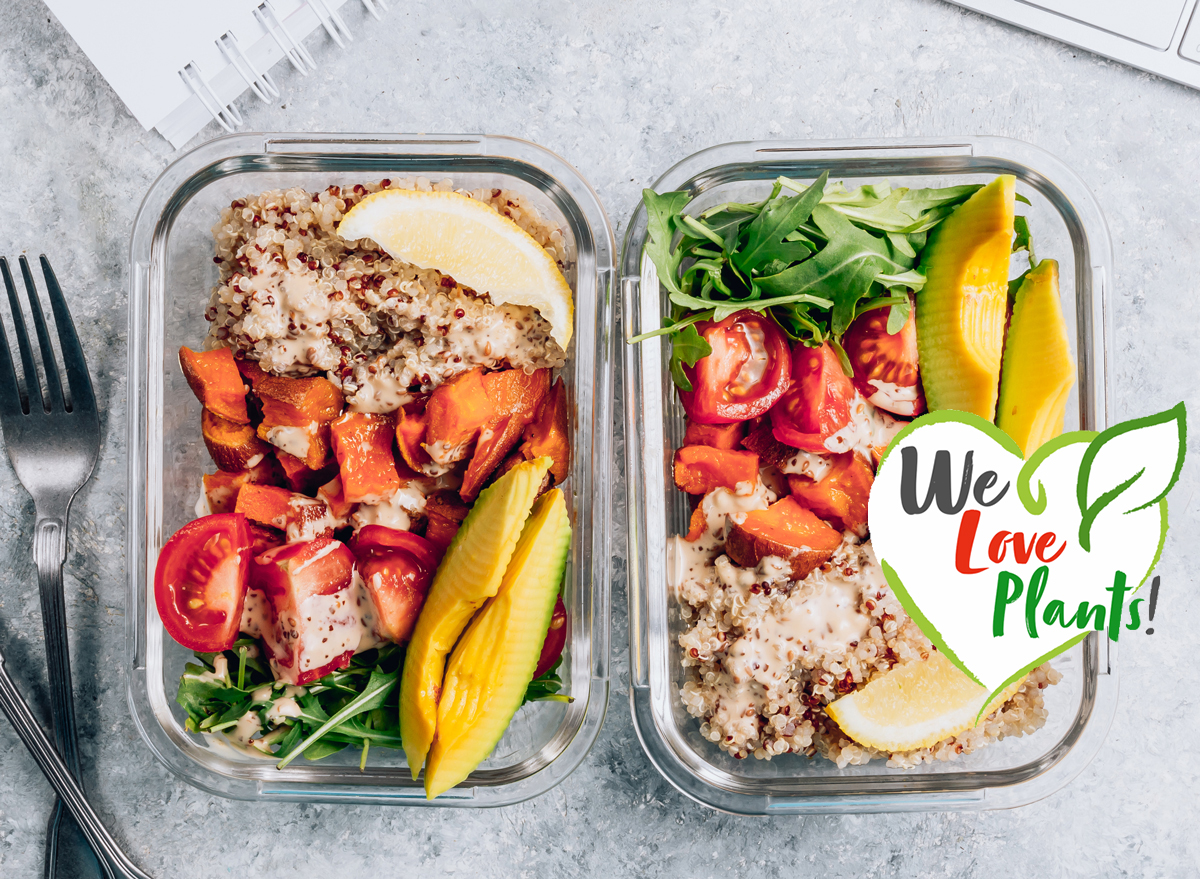The Best Way to Achieve Your Ideal Weight, According to the Mayo Clinic

Aren’t you tired of feeling beholden to dieting to achieve your ideal weight? Even with all the diet restrictions, additions, habits, and detoxes, oftentimes these interventions aren’t enough to get you to where you want to go. If that’s the case, it might be time to approach your weight loss goal with a new mindset.
To achieve your ideal weight, Mayo Clinic family medicine physician Meghan Theofiles, MD, shares some advice that can help you reach that goal: take a plant-based approach to your diet.
“Most medical professionals agree that the healthiest way to maintain a healthy weight, feel good, and prevent chronic disease is to eat a diet that is rich in vegetables, fruits, whole grains, and plant-based proteins (e.g., legumes, lentils and soy-based products),” says Dr. Theofiles in a recent Mayo Clinic blog post. “In addition, this diet should be low in animal products, saturated fats, and refined sugars,” she adds.
There’s ample evidence that supports plant-based diets’ benefits on weight regulation. In a 2o2o Diabetes, Metabolic Syndrome and Obesity review, researchers found that all 19 studies included in the meta-analysis found weight reductions when comparing a plant-based diet to an omnivore diet.
“If you decide to go all-in and adopt a whole-foods, plant-based, minimally processed diet, you will likely find yourself losing weight and feeling better, without the need for calorie-counting,” says Dr. Theofiles.
She attributes some of the weight-maintaining effects of a plant-based diet to its high levels of fiber.
The daily recommended intake of fiber is 28 grams per day, but some estimates say 95% of Americans aren’t getting meeting this recommendation. This deficiency, in part, can be linked to the rapid and persistent increases in the average body weight of U.S. adults. The CDC has found that men and women weigh about 15 pounds more than they did 20 years ago, and more than 2 in 3 Americans are overweight or obese, according to a JAMA Internal Medicine study.
Eating more fiber, on the other hand, can promote weight loss because fiber fills you ups, “and helps you eat smaller portions than you normally would if you were eating simple carbohydrates and refined sugars,” says Dr. Theofiles.
In fact, a recent Journal of Nutrition study found that when participants increased their fiber intake by 4 grams per day over what they consumed before the study, they lost an additional 3 ¼ pounds over 6 months.
On top of maintaining a healthy weight, what are some additional benefits of a plant-based diet?
Eating more plant foods won’t just support your weight loss goals. These nutrient-dense foods contain thousands of health-promoting compounds that can influence numerous aspects of your overall health and well-being.
“If you have food and lifestyle-related diseases, such as high blood pressure, high cholesterol, heart disease, erectile dysfunction, fatty liver disease or diabetes, you will likely be able to work with your provider to reduce, if not get rid of some of your medications, and possibly reverse the disease process [with a whole-foods, plant-based, minimally processed diet],” says Dr. Theofiles.
How to eat a more plant-based diet
Dr. Theofiles sympathizes with our struggles, noting that it’s not as easy as it once was to consume a diet rich in plant-based whole foods. “Although this is how people were designed to eat, you are surrounded by a toxic food environment that makes it too easy to choose convenience or processed foods that are not nutritious versus nutritious whole foods.”
To overcome these obstacles, consider meal prepping some veggies at the beginning of the week or merely buying snackable versions, like baby carrots.
Put some fresh fruit on the counter. Studies show that it acts as a visual reminder to eat fresh fruits and makes you more likely to actually reach for a bite rather than digging your hand into a bag of chips.
Stock up on frozen fruits and veggies. Most of us tend to agree that fruits and veggies can go bad quickly and they take a bit long to prep—frozen versions solve both of those problems.
“If you can commit to even four weeks of a plant-based, whole-foods diet, you will experience meaningful benefits in how you feel and relate to food,” says Dr. Theofiles.
Get started with these 33 Easy Plant-Based Recipes Even Carnivores Will Love!
For more healthy eating news, make sure to sign up for our newsletter!








